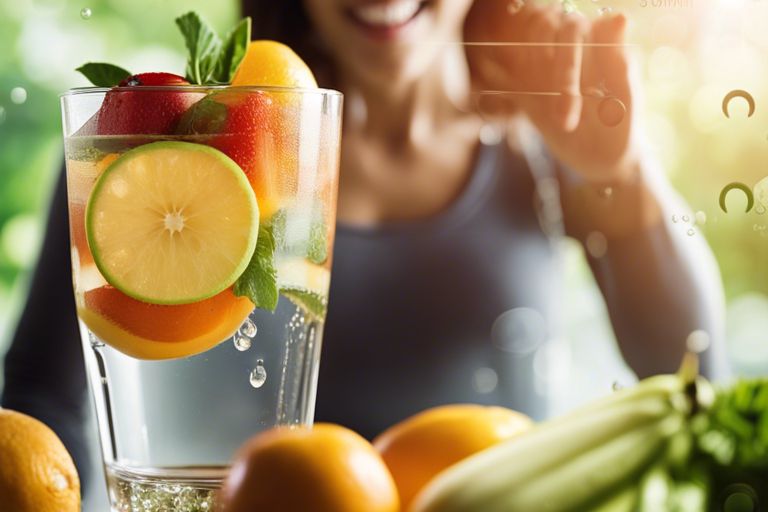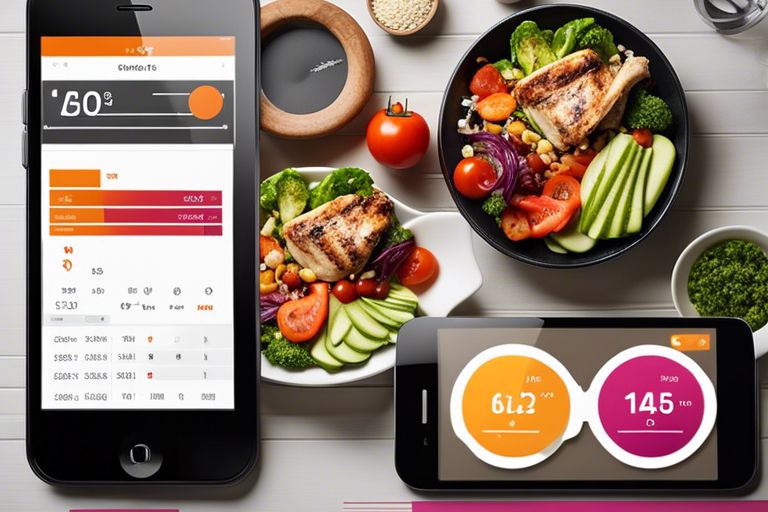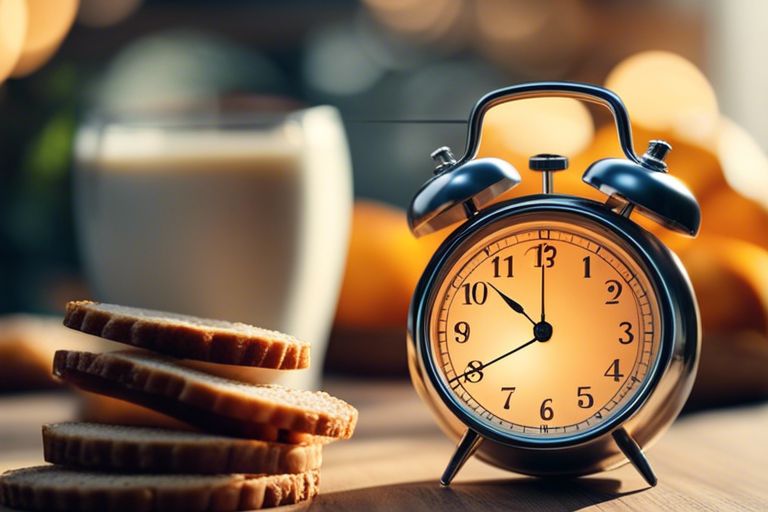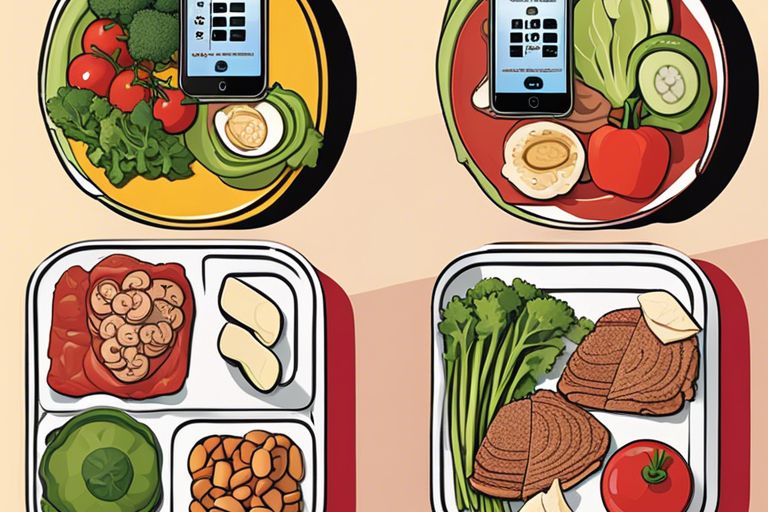
What Is the Role of Hydration in Weight Loss and How Much Should You Really Drink?
Hydration plays a crucial role in weight loss and overall health. Many people underestimate the impact of proper hydration on their weight loss journey. Staying adequately hydrated is essential for optimal metabolism, digestion, and elimination of waste products from the body. Not drinking enough water can severely hinder your weight loss efforts and lead to negative health consequences. But how much water should you really be drinking each day to support weight loss and overall well-being? In this guide, we will explore the important role of hydration in weight loss and provide expert recommendations on how much water you should really be consuming.
Key Takeaways:
- Hydration is essential for weight loss: Staying properly hydrated helps in maintaining metabolism and aids in the breakdown of fats.
- Water intake varies by individual: The commonly recommended 8 glasses a day might not be suitable for everyone. Factors like activity level, climate, and body weight play a role in determining optimal fluid consumption.
- Thirst may not always indicate dehydration: Often, feeling thirsty does not necessarily mean your body is dehydrated. It’s important to drink water regularly throughout the day regardless of thirst cues.
- Hydration can aid in appetite control: Drinking water before meals can help in reducing overall food intake, making it easier to manage calorie consumption for weight loss.
- Monitoring urine color can be helpful: Urine color can be a good indicator of hydration levels. Light yellow or pale straw-colored urine typically indicates proper hydration.


Understanding Hydration
Some people may underestimate the important role that hydration plays in overall health, including weight loss. Hydration is not just about drinking water; it’s about maintaining the right balance of fluids in the body to support various bodily functions. Understanding the importance of hydration and the various factors that influence it is crucial for achieving weight loss goals.
Types of Fluids and Their Impact on Hydration
Any fluid can contribute to hydration, but not all fluids are created equal. Water is the best option for hydration as it is easily absorbed and does not contain any calories or added sugars. Other beverages, such as electrolyte drinks and unsweetened fruit juices, can also contribute to hydration but may come with added sugars and calories. After consumption, these substances need to be metabolized and can affect hydration differently. Importantly The information should be broken down into a
| Hydration for Weight Reduction | Cons of Increased Water Consumption |
| Supports metabolism and fat breakdown | Potential for water intoxication |
| Regulates appetite and prevents overeating | Increased frequency of restroom visits |
| Helps flush out toxins from the body | Potential electrolyte imbalance |
Cons of increased water consumption for weight reduction include the potential for water intoxication, increased frequency of restroom visits, and potential electrolyte imbalance. It’s important to be mindful of these cons as you incorporate hydration into your weight loss journey.

Practical Hydration Tips for Weight Loss
Despite the abundance of information regarding hydration and weight loss, many people still struggle with the practical aspects of staying adequately hydrated for weight loss. Here are some tips to help you optimize your hydration for weight loss:
- Drink at least 8 glasses of water per day
- Carry a refillable water bottle with you at all times
- Replace sugary drinks with water or hydration-boosting beverages
- Pay attention to your body’s signals of thirst
- Eat water-rich foods such as fruits and vegetables
Knowing how to practically incorporate these hydration tips into your daily routine is key to successful weight loss.
Step-by-Step Guide to Optimizing Hydration for Weight Loss
Practical hydration for weight loss can be broken down into the following steps:
| Step 1: | Calculate your daily water intake needs based on your body weight |
| Step 2: | Create a schedule for drinking water throughout the day |
Following this step-by-step guide will ensure that you are consistently optimizing your hydration for weight loss.
Identifying Personal Hydration Needs
Loss of water from the body can occur through excretion, sweating, and breathing. Understanding your personal hydration needs is crucial for successful weight loss.
Weight, daily activity level, and climate are important factors to consider when identifying your personal hydration needs for weight loss. It is essential to stay hydrated to support weight loss and overall health.
Advanced Hydration Strategies
Unlike basic hydration strategies, advanced hydration tactics involve more specific and intentional methods to optimize your body’s hydration levels for weight loss and overall health.
- Increased Hydration Can Be Associated with Weight Loss: Researchers have found that increased hydration can be associated with weight loss, as it may help to suppress appetite and improve metabolism.
| Strategy | Description |
| Hydration Timing | Strategically timing your water intake around meals and workouts can maximize its benefits for weight loss. |
| Electrolyte Balance | Maintaining proper electrolyte levels through hydration and diet can support optimal body function. |
Incorporating Hydration into Your Diet and Exercise Plan
To make hydration an integral part of your weight loss journey, consider incorporating water-rich foods and beverages into your meals, and scheduling regular water breaks during your workouts.
Tips for Staying Hydrated Through the Day
Implement regular water intake breaks into your daily routine, carry a reusable water bottle with you, and consume hydrating foods such as fruits and vegetables. Knowing the signs of dehydration can also help you stay ahead of your hydration needs.
This strategic approach to hydration can play a critical role in your weight loss efforts, with the potential to boost metabolism and improve appetite control. By considering advanced hydration strategies, you can optimize your body’s ability to shed excess weight while maintaining overall wellness.
The Role of Hydration in Weight Loss
The role of hydration in weight loss is critical, as it helps to regulate metabolism, suppress appetite, and improve exercise performance. It also plays a key role in flushing out toxins and waste products from the body. Proper hydration can also prevent water retention, leading to a decrease in bloating and overall body weight. So, how much should you really drink? The general recommendation is to aim for 8-10 8-ounce glasses of water per day, but individual needs can vary based on factors such as activity level, climate, and overall health. It’s important to listen to your body and drink when you feel thirsty, and to make adjustments as needed based on your own unique circumstances.
FAQ
Q: What is the role of hydration in weight loss?
A: Hydration plays a crucial role in weight loss by aiding in the body’s metabolism and digestion processes. Drinking enough water can also help control appetite, reduce food intake, and support the body’s fat-burning mechanisms.
Q: How much water should I drink for weight loss?
A: The amount of water needed varies for each individual, but a general guideline is to aim for at least 8-10 cups (64-80 ounces) of water per day. However, factors such as activity level, climate, and overall health should also be considered when determining optimal hydration levels for weight loss.
Q: Can drinking water help burn calories?
A: Yes, drinking water can help burn calories. When the body is well-hydrated, it is better able to efficiently convert stored fat into energy, leading to increased calorie burning. Additionally, drinking water can boost the body’s metabolism, aiding in weight loss efforts.
Q: What are the signs of dehydration during weight loss?
A: Signs of dehydration during weight loss can include dark colored urine, dry mouth, headaches, fatigue, and dizziness. It’s important to stay vigilant and ensure adequate hydration, especially when actively trying to lose weight.
Q: Are there any tips for staying hydrated while trying to lose weight?
A: Some tips for staying hydrated while trying to lose weight include carrying a water bottle with you throughout the day, flavoring water with natural additives like lemon or cucumber, eating water-rich foods such as fruits and vegetables, and setting reminders to drink water regularly.




